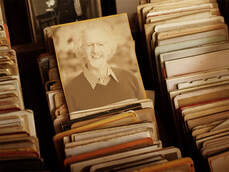philip yancey
Philip Yancey (born 1949) is an American Christian author. Fourteen million copies of his books have been sold worldwide, making him one of the best-selling evangelical Christian authors. Two of his books have won the ECPA's Christian Book of the Year Award: The Jesus I Never Knew in 1996, What's So Amazing About Grace in 1998. He is published by Zondervan Publishing and Hachette.
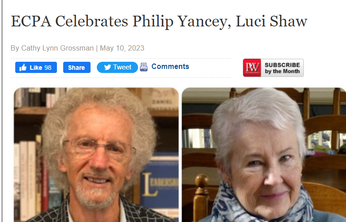
May 5, 2023:
Philip Yancey is no stranger to The Evangelical Christian Publishers Association's Awards Celebration held during their annual Leadership Summit. The author has been honored numerous times for sales in the millions and unflinching prose. On May 9, Yancey reached the top, the Pinnacle Award for an author's impact on the Church and society, and Luci Shaw — editor, poet, and co-founder of Harold Shaw Publishers — was presented with the Kenneth N. Taylor Lifetime Achievement Award. The ECPA cited her 'innovative, influential and enduring" contributions, raising the bar for "literary excellence in Christian publishing."In naming Yancey, the ECPA cited his 12 Gold Medallion Book Awards titles that exceeded 500,000 copies in sales, a Christian Book Award for Grace Notes in 2010, and two Book of the Year Awards for The Jesus I Never Knew in 1996, and What’s So Amazing About Grace in 1998. ECPA president Jeff Crosby praised Yancey for decades of writing with "honesty, piercing questions, and resilient hopefulness" in a string of titles including Disappointment with God, The Question That Never Goes Away, Soul Survivor, and, most recently, the memoir Where the Light Fell.
This year is the 25th anniversary of his first book, Where Is God When It Hurts (Zondervan), on living without anger or fear in the face of physical, emotional, or spiritual pain. The book has been updated through the years as issues have arisen. And in a new edition this falll of his book What's So Amazing about Grace, Yancey, who frequently shares his own experiences, doubts, and struggles in his works, may add a new perspective — dealing with his recent diagnosis of Parkinson’s.
Yancey, who is 73, wrote in a blog post, "My future is full of question marks, and I’m not unduly anxious. I have excellent medical care and support from friends. I trust a good and loving God who often chooses to reveal those qualities through his followers on earth. I have written many words on suffering and now am being called to put them into practice. May I be a faithful steward of this latest chapter."
Meanwhile, he's on to writing his 26th book — co-authoring What Went Wrong: Russia's U-Turn and the Path to Ukraine (Wipf and Stock Publishing, late fall) with John Bernbaum, founder of the Moscow American Christian University, recently shuttered by Vladimir Putin. They are exploring "what happened to turn Russia from a westward-looking freedom-loving society to a closed hostile society," Yancey said.
Philip Yancey is no stranger to The Evangelical Christian Publishers Association's Awards Celebration held during their annual Leadership Summit. The author has been honored numerous times for sales in the millions and unflinching prose. On May 9, Yancey reached the top, the Pinnacle Award for an author's impact on the Church and society, and Luci Shaw — editor, poet, and co-founder of Harold Shaw Publishers — was presented with the Kenneth N. Taylor Lifetime Achievement Award. The ECPA cited her 'innovative, influential and enduring" contributions, raising the bar for "literary excellence in Christian publishing."In naming Yancey, the ECPA cited his 12 Gold Medallion Book Awards titles that exceeded 500,000 copies in sales, a Christian Book Award for Grace Notes in 2010, and two Book of the Year Awards for The Jesus I Never Knew in 1996, and What’s So Amazing About Grace in 1998. ECPA president Jeff Crosby praised Yancey for decades of writing with "honesty, piercing questions, and resilient hopefulness" in a string of titles including Disappointment with God, The Question That Never Goes Away, Soul Survivor, and, most recently, the memoir Where the Light Fell.
This year is the 25th anniversary of his first book, Where Is God When It Hurts (Zondervan), on living without anger or fear in the face of physical, emotional, or spiritual pain. The book has been updated through the years as issues have arisen. And in a new edition this falll of his book What's So Amazing about Grace, Yancey, who frequently shares his own experiences, doubts, and struggles in his works, may add a new perspective — dealing with his recent diagnosis of Parkinson’s.
Yancey, who is 73, wrote in a blog post, "My future is full of question marks, and I’m not unduly anxious. I have excellent medical care and support from friends. I trust a good and loving God who often chooses to reveal those qualities through his followers on earth. I have written many words on suffering and now am being called to put them into practice. May I be a faithful steward of this latest chapter."
Meanwhile, he's on to writing his 26th book — co-authoring What Went Wrong: Russia's U-Turn and the Path to Ukraine (Wipf and Stock Publishing, late fall) with John Bernbaum, founder of the Moscow American Christian University, recently shuttered by Vladimir Putin. They are exploring "what happened to turn Russia from a westward-looking freedom-loving society to a closed hostile society," Yancey said.
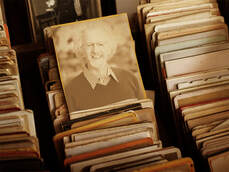 Philip Yancey Files
Philip Yancey Files
Having spent time around "sinners" and also around purported saints, I have a hunch why Jesus spent so much time with the former group: I think he preferred their company. Because the sinners were honest about themselves and had no pretense. Jesus could deal with them. In contrast, the saints put on airs, judged him, and sought to catch him in a moral trap. In the end it was the saints, not the sinners, who arrested Jesus. --Philip Yancey; What's So Amazing About Grace? 1997
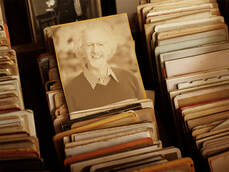 Philip Yancey Files
Philip Yancey Files
Having spent time around "sinners" and also around purported saints, I have a hunch why Jesus spent so much time with the former group: I think he preferred their company. Because the sinners were honest about themselves and had no pretense. Jesus could deal with them. In contrast, the saints put on airs, judged him, and sought to catch him in a moral trap. In the end it was the saints, not the sinners, who arrested Jesus. --Philip Yancey; What's So Amazing About Grace? 1997
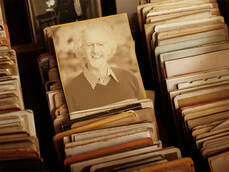 Philip Yancey Files
Philip Yancey Files
"I said I was baffled by evangelicals' enthusiasm for a billionaire who acts like a bully, made his money from casinos, and has had several wives and several affairs. I was addressing Europeans who find it incomprehensible that so many American Christians have lined up behind Donald Trump. I was not endorsing a political candidate, and in the interview I acknowledged that some issues are so important (for example, abortion) that a Christian may decide to vote for a badly flawed candidate because of those issues...Rather, I was cautioning against the church selling its soul for access to power — a danger that Europeans know all too well. In Europe, millions will have nothing to do with church because of the way it wielded power alongside the state in the Middle Ages." --Philip Yancey; 9.30.16
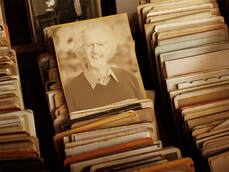 Philip Yancey Files
Philip Yancey Files
"I am staggered that so many conservative or evangelical Christians would see a man who is a bully, who made his money by casinos, who has had several wives and several affairs … That they would somehow paint him as a hero, as someone that we could stand behind. I can understand why maybe you choose these policies that you support, but to choose a person who stands against everything that Christianity believes as the hero, the representative, one that we get behind enthusiastically is not something that I understand at all. There are countries in Europe where the church is set back for decades and decades, because they have been stained by how they sold their soul for power. As the United States grows more and more secular, I tell the people there: 'We are becoming more like the fertile soil in which the early church did best'. Like the Roman Empire, this was a pagan and hostile society in which Christians stood out by being different."
--Philip Yancey; 9.27.16
--Philip Yancey; 9.27.16
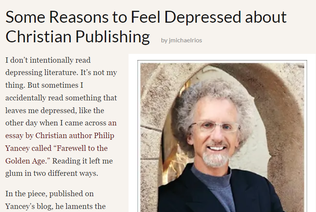
"I don’t intentionally read depressing literature. It’s not my thing. But sometimes I accidentally read something that leaves me depressed, like the other day when I came across an essay by Christian author Philip Yancey called “Farewell to the Golden Age.” Reading it left me glum in two different ways.
In the piece, published on Yancey’s blog, he laments the demise of the publishing industry, particularly as a way to make a living. Where once an aspiring author could reasonably consider submitting articles to magazines, writing a few books, and by means of cultivating this exposure generating some income, changes in the publishing world have made this nearly impossible. The “Golden Age” of publishing, where to be an author was a viable (if difficult) career choice, is over.
Yancey’s essay isn’t particularly novel, but as a seasoned author (and seasoned especially in the world of Christian publishing) his words carried some sobering weight. That this is depressing to me ought to be, I hope, self-evident. I am myself an aspiring Christian author, and yet the field from which I aspired to harvest is one that is increasingly unfruitful. What is more, an author like Yancey who has succeeded in that field is advising other authors to look elsewhere. --Jeremy Rios; Mustard Seed Faith; 7.11.14
In the piece, published on Yancey’s blog, he laments the demise of the publishing industry, particularly as a way to make a living. Where once an aspiring author could reasonably consider submitting articles to magazines, writing a few books, and by means of cultivating this exposure generating some income, changes in the publishing world have made this nearly impossible. The “Golden Age” of publishing, where to be an author was a viable (if difficult) career choice, is over.
Yancey’s essay isn’t particularly novel, but as a seasoned author (and seasoned especially in the world of Christian publishing) his words carried some sobering weight. That this is depressing to me ought to be, I hope, self-evident. I am myself an aspiring Christian author, and yet the field from which I aspired to harvest is one that is increasingly unfruitful. What is more, an author like Yancey who has succeeded in that field is advising other authors to look elsewhere. --Jeremy Rios; Mustard Seed Faith; 7.11.14

Grace Notes: Daily Readings with a Fellow Pilgrim book Who is Jesus? What does prayer accomplish? Why is there pain in the world? These are just a few of the difficult and intensely personal questions that Philip Yancey has tackled in his articles, books, and writings. Grace Notes: Daily Readings with a Fellow Pilgrim is a compilation of Yancey’s best insights and creativity over the past three decades. Each of the 366 daily readings features the freshness, clarity, and honesty of one of the most admired Christian writers of our generation.
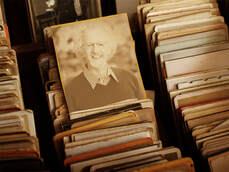 Philip Yancey Files
Philip Yancey Files
"Today, if I had to answer the question: Where is God when it hurts? in a single sentence, I would make that sentence another question: Where is the church when it hurts? We form the front line of Gods response to the suffering world."
--Philip Yancey; Where is God When it Hurts? 1997


